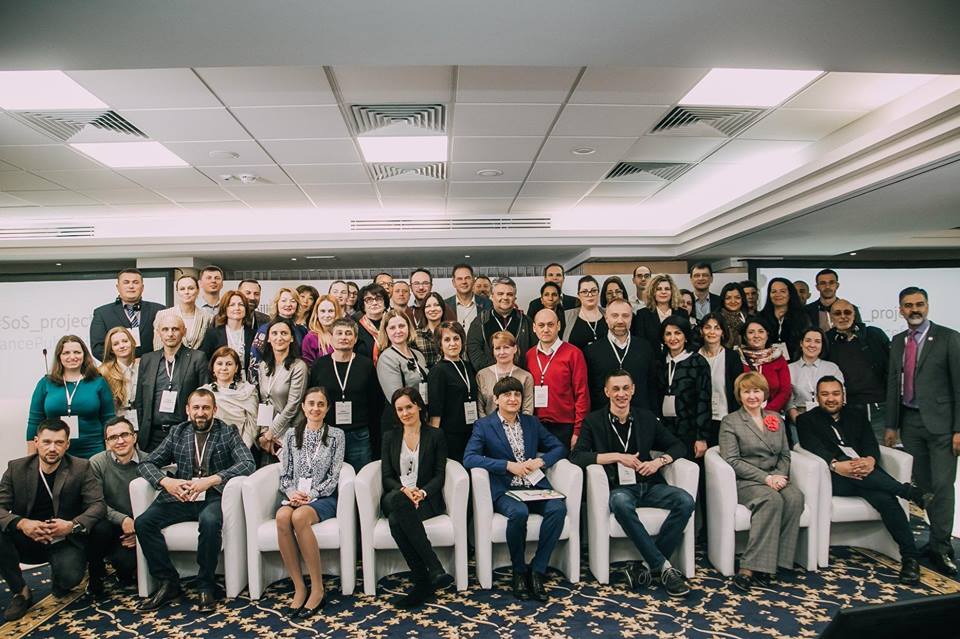Eurasian Key Population Health Network (EKHN)
The Eurasian Key Population Health Network (EKHN) is a regional network of 19 organizations in eight countries of Eastern Europe and Central Asia: Armenia, Azerbaijan, Belarus, Georgia, Kazakhstan, and Moldova. Based in Poland, EKHN is focused on supporting the leadership and advocacy of women, girls, transgender people and other key populations in work to address HIV, TB, viral hepatitis, sexual and reproductive health and rights (SRHR), harm reduction, gender-based violence (GBV), and gender equality.
| Grantee type: Regional |
| Grant: $598,500 |
| Grant period: 2016-2018 |
| Lead organization: Eastern European Key Population Health Network (EKHN) |
- The Eastern Europe and Central Asia region (EECA) has one of the world’s fastest growing HIV epidemics, with 1.4 million people living with HIV and an additional 130,000 people contracting the virus every year. Approximately one in four HIV-positive people are undiagnosed and don’t know of their infection, and only a third of all HIV-positive people have accessed HIV treatment. The EECA region also has other significant HIV-related health issues such as high rates of tuberculosis (TB), hepatitis C (HCV) and sexually transmitted infections (STIs).
- The burden of these health issues is disproportionately borne by key populations such as people who inject drugs, prisoners, gay men, transgender people, sex workers, and migrants, who collectively represent more than 95% of new HIV infections in Eastern Europe and Central Asia each year. Yet according to UNAIDS, only 3% of total HIV expenditures in the region go for programming focused on these key populations. Total government health spending in large middle-income countries such as Kazakhstan is less than US$ 1000 per person per year and yet most countries in the region are considered too wealthy to be eligible for international development assistance.
- Meanwhile, in several EECA countries, key populations are facing increased violence and abuse, and constraints on freedoms of expression and organizing. Ten countries criminalize or penalize people engaged in sex work, all have restrictive laws and policies about drug use and possession, and at least seven countries restrict provision of services without parental consent to adolescents younger than 16 years of age. Throughout the EECA region, transgender people are at higher risk of discrimination, gender-based violence and other human rights violations, and face reduced access to employment, education, housing, and services. The result: key populations cannot access quality health services or protection or redress for human rights violations, and therefore continue to experience worsening HIV epidemics and other health disparities.
- To change this situation, the capacity of networks of inadequately served populations (ISPs) to organize and advocate is central to improving access to health information and services and to work with, and advocate with, EECA governments to affirm and protect people’s rights and create and fund appropriate services.

RCF Funding 2016-2018
The Eurasian Key Population Health Network (EKHN) received US$ 599,000 in funding from the Robert Carr Fund during 2016-2018. This funding was allocated to both core and strategic program costs across all eight EECA countries to help build the capacity of organizations and advocates and to support collective action across the region.
Geographic coverage
The Eurasian Key Population Health Network (EKHN) is a regional network of 19 organizations in eight countries of Eastern Europe and Central Asia: Armenia, Azerbaijan, Belarus, Georgia, Kazakhstan, and Moldova.
Population coverage
The Eurasian Key Population Health Network (EKHN) supports the empowerment, leadership, health and rights of all inadequately served populations (ISPs) with a focus on transgender people, gay men and other men who have sex with men (MSM), people who use drugs, sex workers, women and girls and people living with HIV, TB, or viral hepatitis.
Activities 2016-2018
With RCF funding in 2016-2018, the Eurasian Key Population Health Network (EKHN) supported regional and national organizing and advocacy for human rights and health services, as well as organizational capacity building in eight countries of Eastern Europe and Central Asia. For example:
- At a regional level, EKHN along with the Alliance for Public Health and Central Asian PLHIV Association is implementing a Global Fund grant to support the sustainability of services for key populations, and EKHN is also working with the World Health Organization to translate the WHO guidance documents regarding the health of transgender people into Armenian, Belorussian, Azeri, Georgian, and Romanian.
Across all eight countries of Armenia, Azerbaijan, Belarus, Georgia, Kazakhstan, and Moldova, EKHN has trained key population activists and government stakeholders about gender-sensitive programming for HIV, TB, viral hepatitis, sexual and reproductive health and rights (SRHR), harm reduction, gender-based violence (GBV), and gender equality. Across all nine countries, EKHN has also supported transgender activists in developing their networks and organizations and becoming more involved in programming for health and rights.
Results 2016-2018
The results of the work of the Eurasian Key Population Health Network (EKHN) include:
- Network strength and influence: EKHN was able to use RCF funding to become formally registered as an organization in Poland and convened and supported a network of 19 organizations across eight countries.
- Network strength and influence: With support from EKHN and others, transgender activists have been able to build and sustain their organizations and/or become involved in national policy discussions and programming in Armenia, Azerbaijan, Belarus, Georgia, and Moldova. As a result, Ministries of Health and other national stakeholders in those countries are more aware of transgender people’s lack of access to services that are affirming, affordable, and targeted to their needs related to gender identity, sexual health, behavioral health, and practical legal, economic and social needs, and the specific needs of transgender people who are people living with HIV, people who use drugs, and sex workers.